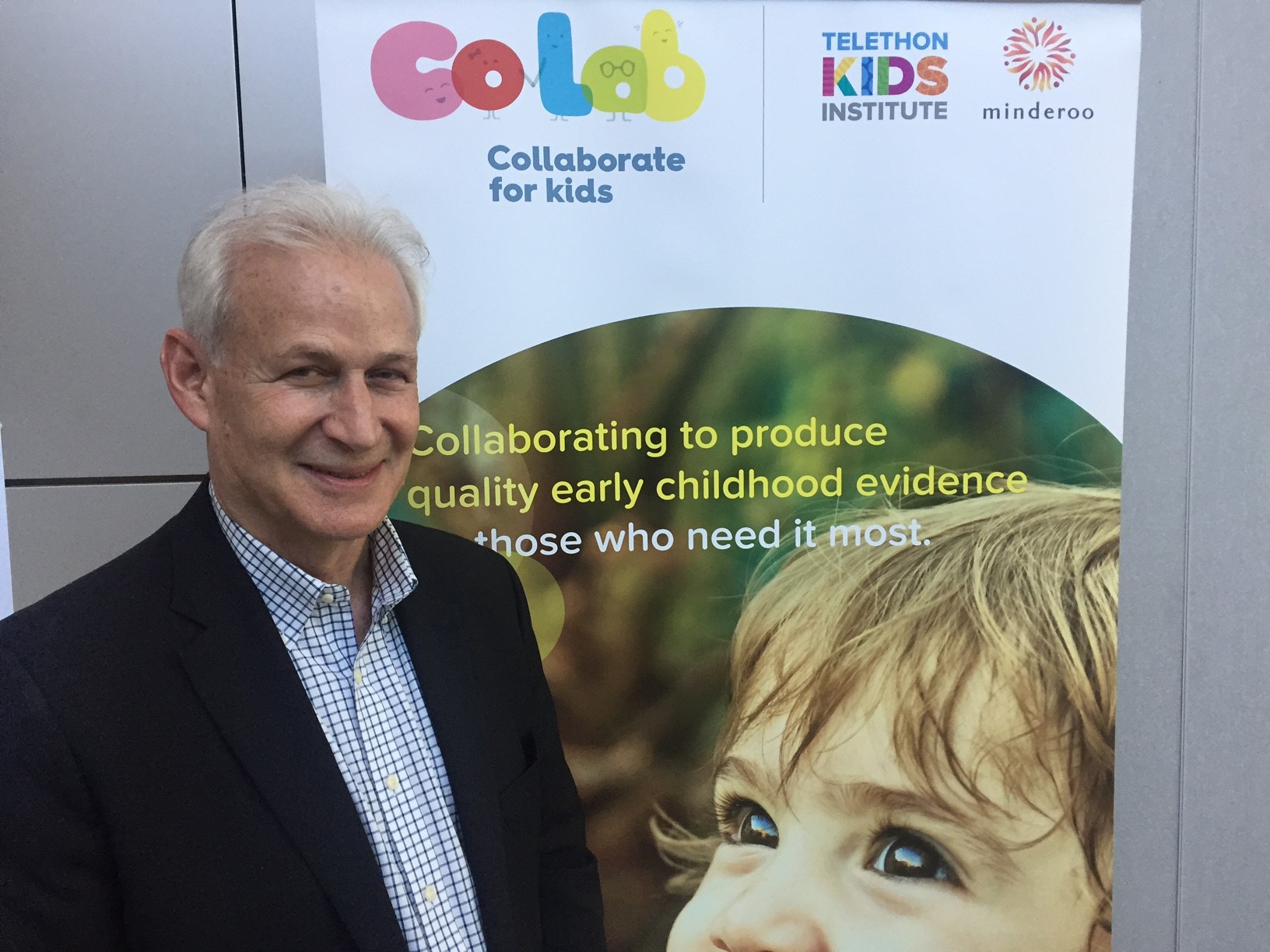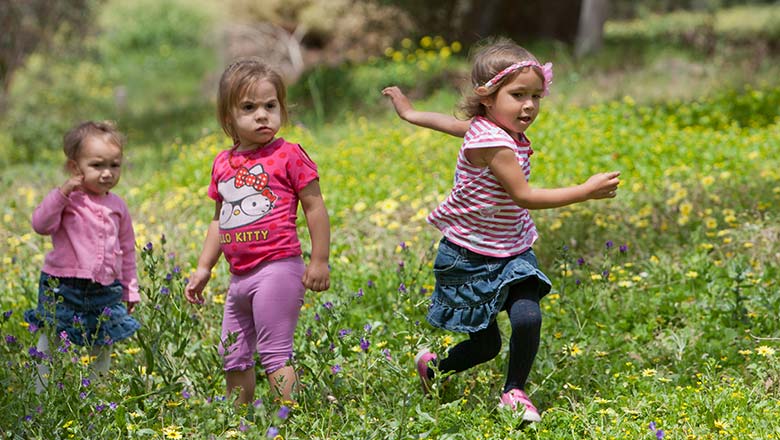Search

News & Events
International expert to bring together WA leaders to improve outcomes for kidsDr Jack Shonkoff, from Harvard University is visiting Perth this week as a guest of CoLab, Goodstart Early Learning and Child Australia.

News & Events
Playgroup Week celebrates importance of early childhood interventionNational Playgroup Week, the annual event run by Playgroup Australia, will take place across the country from 20 March to 27 March.

News & Events
Starting & staying on track10 years of work guided by The Kids Research Institute Australia has resulted in huge improvements in the development of Aboriginal children at the start of school.

News & Events
Key appointments to drive early childhood collaborationLeading child health researcher Professor Donna Cross has been appointed as Director of the new Early Childhood Development and Learning Collaboration, hosted b

News & Events
New research partnership to ensure no child gets left behindResearchers will track the progress of 12,000 children from birth to age five to identify what services are valuable to families to support the health and wellb
News & Events
Australian kids doing better in key development indicatorsAustralian 5 year olds are developing better than they were three years ago and have improved in most development indicators, according to the latest AEDI data.
News & Events
Telethon Institute joins international effort to improve early nutrition and long term healthThe Kids for Child Health Research will join more than 50 scientists from 36 research institutions around the world to improve early nutrition
News & Events
Telethon Institute researcher in nation's top tenHead of nutrition research at Perth's The Kids for Child Health Research named in the nation's top 10 health and medical researchers for 2010.
News & Events
Prevention report shows clear path forwardThe health of Australia's children depends on a firm national commitment to implement the comprehensive strategy outlined by the Preventative Health Taskforce.
News & Events
First national snapshot of Australia's young childrenFor the first time, the Australian Early Development Index (AEDI) has been completed nationally, giving Australia a snapshot of young children's development.
